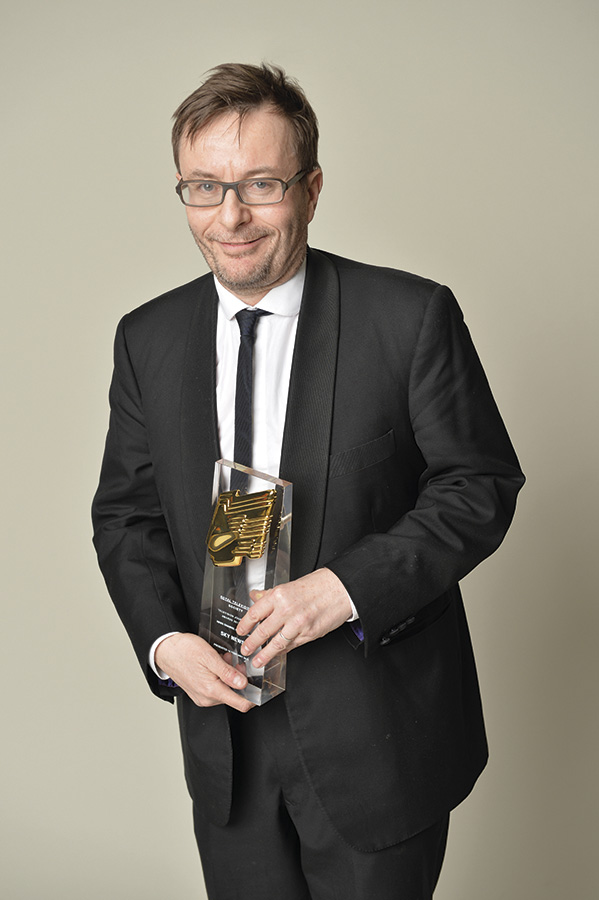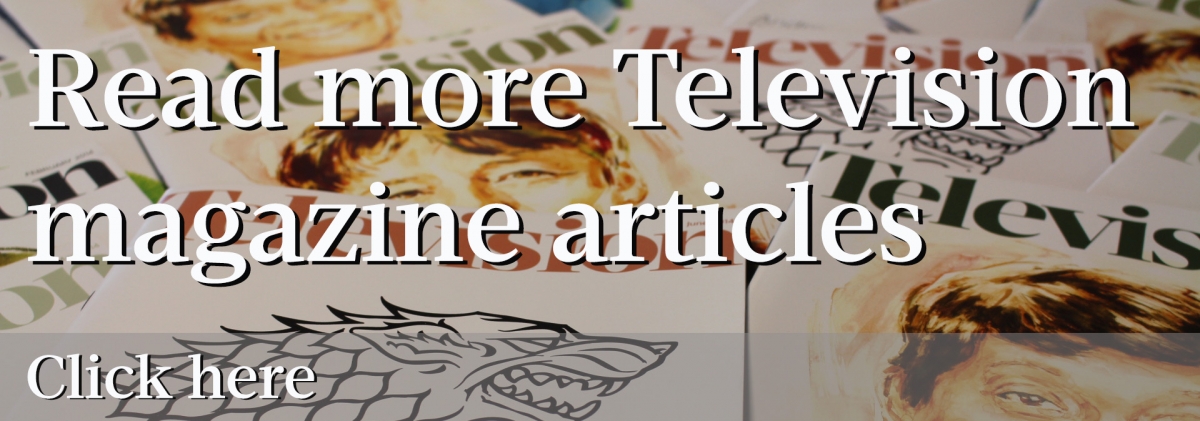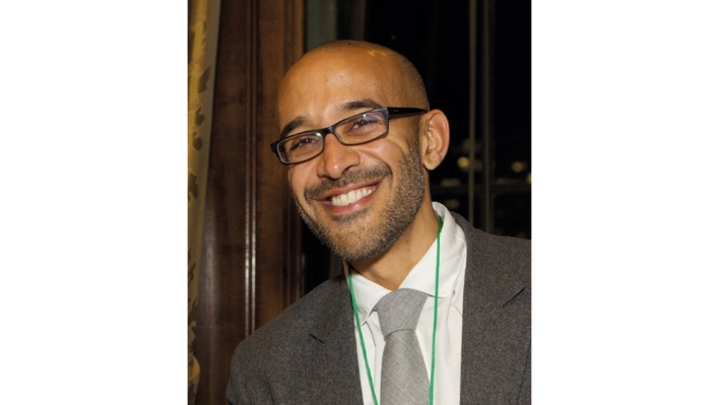Last month, Sky News was again named RTS News Channel of the Year. Andrew Billen unlocks why station chief John Ryley outpaces his rivals

At 2:15pm on 9 January, two days after the Charlie Hebdo murders, news was breaking that a terrorist was holding hostages in a Jewish supermarket in Paris. In France, Sky News – named News Channel of the Year once again by the RTS last month – was at its best: making sense of a developing story with an experienced team of reporters led by its star presenters, Kay Burley and Jeremy Thompson.
But where was their boss? John Ryley was in his office in Osterley, west London – a small, glass-fronted, ground-floor room from which he can glimpse the studio’s main presentation desk – following developments on his room’s two TV sets.
“Then I went in the gallery because I thought, ‘This could all get quite tricky,’” says Ryley. “We’ve got our cameras on these places, and what’s going to happen next? That was our short-term concern.”
Because he didn’t want it to turn into a snuff movie? “Exactly. I went into the gallery because I thought that I might need to intervene here and take some very fast editorial decisions.”
In the end, the bloody conclusion happened off-camera.
But how, you ask, do I know where Ryley was at precisely 2:15pm? I know because he shares a selfie with me.
At 2:15pm each day, he takes one with his iPhone: up a mountain, at the PLO’s HQ in Ramallah; with his children in a shoe shop in Witney, Oxfordshire (where he lives). Usually, it shows him right here at Sky News.
He was promoted to its head in 2006, after 11 years at the channel, succeeding Nick Pollard, who left after an expensive relaunch that produced poor ratings returns.
Adam Boulton, then its Political Editor, confessed that Sky News had fallen a little too in love with its new set. Ryley gutted the new format’s excesses – at one point, the afternoon sequence had three presenters – and dismantled some of the sets.
On-screen graphics became more utilitarian. Over the years, programme names were simplified. The era of opinionated presenters, such as Richard Littlejohn and Jeff Randall, passed.
“We used to have,” Ryley recalls, “this great big, animated strap that said, ‘Breaking News’ and it would pass straight behind everyone.
 “We’ve taken some of the showbiz out of it. We did focus groups that told us that people just wanted the news, and they wanted the news reported in a straight way. We’ve de-showbizzed, for want of a better word.”
“We’ve taken some of the showbiz out of it. We did focus groups that told us that people just wanted the news, and they wanted the news reported in a straight way. We’ve de-showbizzed, for want of a better word.”
He does not look like a big network boss. At 53, he looks like a lean and still hungry reporter. When we meet one lunchtime at Osterley (no lunch taken), he is wearing a baggy pullover that, in the pulling on, appears has made a schoolboy tangle of his hair.
In the US, a big story has just broken: NBC News’s anchor Brian Williams has been suspended for six months for exaggerating his exploits in Iraq.
“I think we’d take a similar approach to what they’ve taken at NBC and we might have been a little quicker than our friends in New York,” he says.
In the past, when Sky News presenters have attracted criticism, usually on grounds of overzealousness – criticism always now magnified in social media – Ryley has acted decisively without suspending anyone.
Colin Brazier, reporting from the scene of the downed Malaysian airliner in the Ukraine last July, began talking about the contents of the victims’ luggage and viewers immediately complained of a lapse in taste. Ryley, cycling in Umbria, was phoned.
“I thought, ‘Oh dear’. And then I spoke to him on the phone and realised what had happened. It was one of those things, and he expressed regret and, actually, he was quite sensible. He said, ‘I need to write something and explain why I did it and apologise.’ And so he wrote a piece in The Guardian.”
Two factors made the Williams affair particularly toxic in the US, Ryley thinks: the country’s reverence for its military and for its anchormen.
He worked at ITN in the early 1990s, at the tail end of the era of Alastair Burnet, the nearest to a Cronkite we ever got. Burnet’s example was never emulated and, at Sky News, even Ryley’s job is less that of an impresario than it once was. “I think television news, in the time that I’ve been doing it, which is a very long time, has become more focused on what is the news and the imparting of the information clearly, rather than on the performance – which I think is a good thing,” he says.
Some of Sky’s biggest names are either moving on or have already left. Tim Marshall, its diplomatic editor, is leaving after 25 years. Ian King has succeeded Jeff Randall as business presenter and Faisal Islam has replaced British television’s longest-serving political editor, Boulton, who now has an evening programme.
Ryley has hired several specialist reporters. “Sky News is, on the whole, very fast and agile with breaking news,” he believes. “We need to offer our audiences sharp analysis and insight, as well.”
“Sky News: the Next Generation” is, he says, “beginning to bear fruit” and he is happy with Boulton’s new show, currently putting on viewers.
Noting a lack of headlines being generated by it, I wonder if it is even possible to get decision-makers on at that hour, and Ryley admits that it is harder than they had thought it would be.
“There’s definitely been a shift. The Coalition Government, for the last nearly five years, unlike Labour, has sort of withdrawn government ministers from taking part.”
Ryley is discussing with the producers ways of ensuring that Boulton himself gets to conduct more of what big-name interviews there are.
"People just wanted the news, and they wanted the news reported in a straight way. We’ve de-showbizzed"
Boulton will be Sky’s main anchor on election night, when “new technology” – Ryley points to his iPhone – will give Sky the choice of taking 282 declarations live; results will appear on screen via a version of a football-scores vidiprinter.
The election debate that Sky is due to jointly host with Channel 4 will, however, be chaired by Jeremy Paxman and Sky’s Burley – provided, that is, David Cameron finally agrees to turn up.
For Ryley, who campaigned for the debates in 2010, it is becoming a sore point: “I am a bit frustrated. I’m an optimist, a big optimist, and I think a debate or two, in some shape or form, will happen by the time we all go and put a cross on 7 May in the polling booth. But there’s still quite a lot of hard graft ahead.
“I think it will get cracked in the end, but it will be interesting. I think the Prime Minister will have to – how do I put this diplomatically, or even undiplomatically? – think about the consequences of taking part in no debates, just five years after he was in the vanguard of calling for them to happen.”
Would Ryley put an empty chair on the stage? “No, I wouldn’t, because, while that has obvious showbiz appeal, I think it’s irresponsible.”
He arrives at Sky each day at 6:50am and leaves exactly 12 hours later. At home, in Witney, is his wife, Harriet Constable, a former reporter-presenter for Central South in Abingdon. Ryley met her in a pub in Soho. They married in 1987 and Constable gave up her career to bring up their children, now 20, 19 and 18.
Does he feel guilty? “No.”
Nor does he make much of a show of regret for seeing his children less than he would have liked as they grew up. Ryley does believe in holidays, he says, and he and Harriet have a date each week, travelling from Witney to nearby Oxford for an egg-and-chip café supper followed by a movie.
A single child, he was born in Chelmsford but grew up near Hastings. His father, Ted, worked for the National Farmers Union, married a farmer’s daughter and was never happier than when he was on a tractor.
Their big friends were the Moores, whose children included former Telegraph editor Charles and his brother, Rowan. Politics were in the air but one can infer, perhaps, not very leftish ones.
He was privately educated at Eastbourne College at the same time as Sam Kiley, Sky’s Foreign Affairs Editor.
Ryley’s ambition was to become a theatre director. At Durham, where he read Latin, English and Russian studies, he directed a Brecht play and played, “very badly”, Willy Loman in Death of a Salesman.
He almost became a barrister but, sick of exams, instead entered freelance radio journalism in Kent for Invicta FM, where he covered the Herald of Free Enterprise disaster, and worked for BBC Radio Sussex.
In 1987, Ryley successfully applied to be a BBC News trainee and found himself in the same intake as Jeremy Vine, with whom he remains friends.
He worked on The World at One as a producer under Kevin Marsh – “fantastic, a role model” – yet the BBC did not, in the end, suit him. “I think I may have been a bit immature,” he says. “The BBC was just so big.”
Replying to a Guardian ad, Ryley joined ITN’s News at Ten as a sub-editor, staying until 1995. When Margaret Thatcher resigned, the network handed over to ITN for open-ended coverage – “unthinkable now,” he says.
Out of the blue, he was rung up by Ian Cook, the Head of Sky News.
“I caught the tube to Osterley. I walked up the road, and I thought, ‘What on earth am I doing?’ Then I went in there and I thought, ‘OK, this is quite exciting. It’s 24-hour news. This could be a really big canvas.’”
Even though its budget was nothing like it is today? “But that meant that you really honed your news judgement. You had to be very resourceful. To this day, we don’t have the budget of BBC News. If we send on a story, we will report that story.”
During the past two decades, many of the innovations in television news have come from Sky: 3D models for the Ian Huntley trial in 2003; nightly re-enactments of the Hutton Inquiry the same year; cameras inside the Court of Appeal a decade later; the party leaders quizzed live by young voters in February as part of “Stand Up Be Counted”. This last is a Sky campaign that encourages under-25s to vote (I expect Ryley to bend my ear about this, but he doesn’t).
The day we speak, cool, youth-orientated Sky News bulletins become available on the mobile app Snapchat.
However, Ryley’s aspirations for Sky are heading in the direction of interpretation: longer, 12-minute reports screened in afternoon slots; Boulton’s analysis-heavy Sky News Tonight; and now a small documentary unit he is setting up with a couple of “world-class” producer-directors.
“This’ll sound pompous, and I don’t mean it to at all, but I am doing so with the ambition of getting Oscar nominations in the documentary category,” he says.
Ryley is a focused man and, I suspect, an austere and driven one (his hobby is cross-country cycling).
If, as this 2:15pm photograph business suggests, he is mildly and likeably eccentric, it also indicates that he sees life as a marathon, not a series of sprints.
There is usually nothing more throwaway than a selfie but his are collected and one day will form the pixels for a giant self-portrait in his home. Ryley, the rolling news guy, is, again, going for the big picture.







